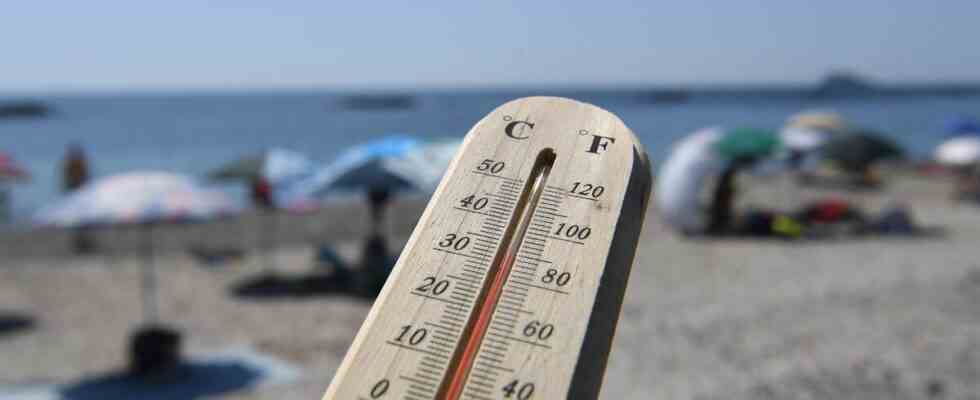“The summer we have just spent is a powerful call to order,” Prime Minister Elisabeth Borne launched on Monday, a few days after President Emmanuel Macron estimated that the country was facing a “big seesaw”. including the impacts of global warming. The summary of the summer readings – the meteorological summer covers the months of June-July-August – will not be revealed until 5 p.m. but, over the summer, Météo France has already broken records.
Like these “exceptional series” of consecutive hot days (more than 25°C), for example in Marseille since May 9, i.e. already 113 days, leaving far behind the 102 days from June 14 to September 23, 2018. In Strasbourg the series lasts since July 11, i.e. already 50 days (previous record 33 days in 1976/2003/2018).
In Nice, Monday, there were 60 consecutive “tropical nights”, that is to say with a temperature not falling below 20 degrees, which makes physical recovery particularly difficult. The previous record, 58 nights, dates from 2016.
A phenomenon attributed by Météo-France Sud-Est to “the influence of a high Mediterranean temperature”, the Big Blue having also suffered from a sea heat wave, “4 to 5 degrees” above the normal temperatures, threatening marine ecosystems.
Repeated heat waves
Almost the entire country suffocated under three episodes of heat wave, the first in June. Many absolute heat records have been shattered, even in the north-west of the country, which is no longer a heat wave shelter protected by the ocean. The thermometer reached 39.3°C in July at the tip of Brittany, in Brest, and 40.4°C in the Norman port of Dieppe.
Combined with the lack of rain, the heat favored the drought that affects almost the entire country and made the vegetation particularly flammable. Result, a dark season of forest fires with 62,000 hectares ravaged since the beginning of the year, against an average of 8,500 at the same time, according to data from the European Forest Fire Information System (EFFIS).
The country has experienced unusual fires, such as that of Landiras, in the south of the Gironde, which burned more than 20,000 hectares in two times. And fires even in places that we did not imagine exposed, such as the mythical Breton forest of Brocéliande.
Another victim of the drought, the agricultural world, with certain harvests expected to decline (-18% for corn, -20% for potatoes), leading the government to release aid.
Impressive thunderstorms
Public opinion was also marked by impressive stormy episodes which killed five people in Corsica on August 18. If such exceptional weather phenomena are not directly attributable to climate change, it increases their intensity and frequency according to climatologists.
And such a summer could resemble “an average summer in the middle of the century”, if the emissions of greenhouse gases responsible for global warming do not drop sharply, according to the models of Météo-France.
The fight against climate change therefore punctuates much of the start of the school year, from debates on private jets or swimming pools to statements by the heads of the executive, accused of not doing enough by the left-wing opposition and environmental NGOs.
In any case, the summer of 2022 will have marked public opinion, raising climate change to second place among the concerns of the French (32%) just behind inflation (33%), according to a recent Ipsos survey.

